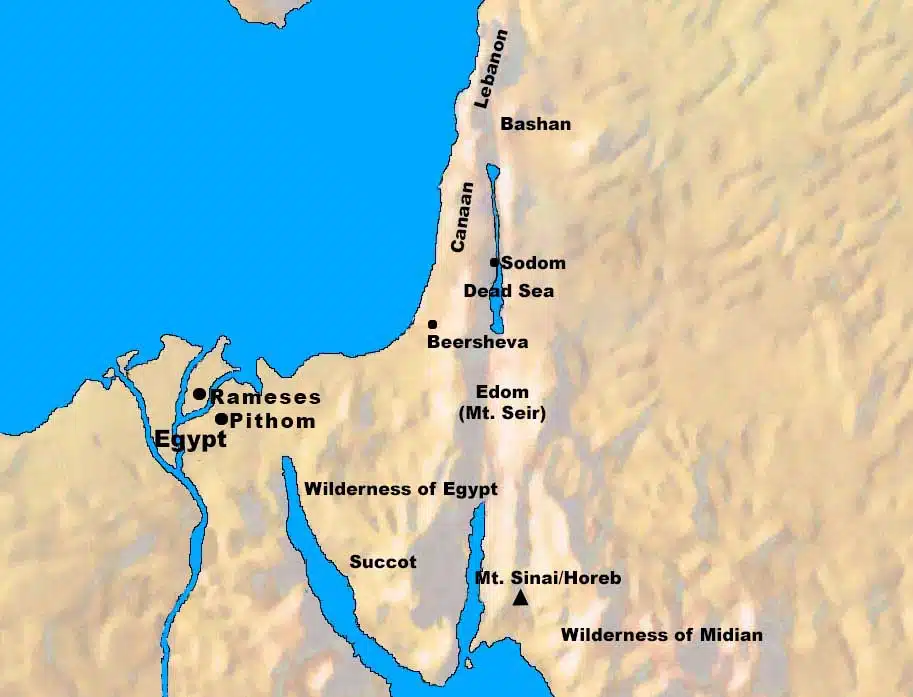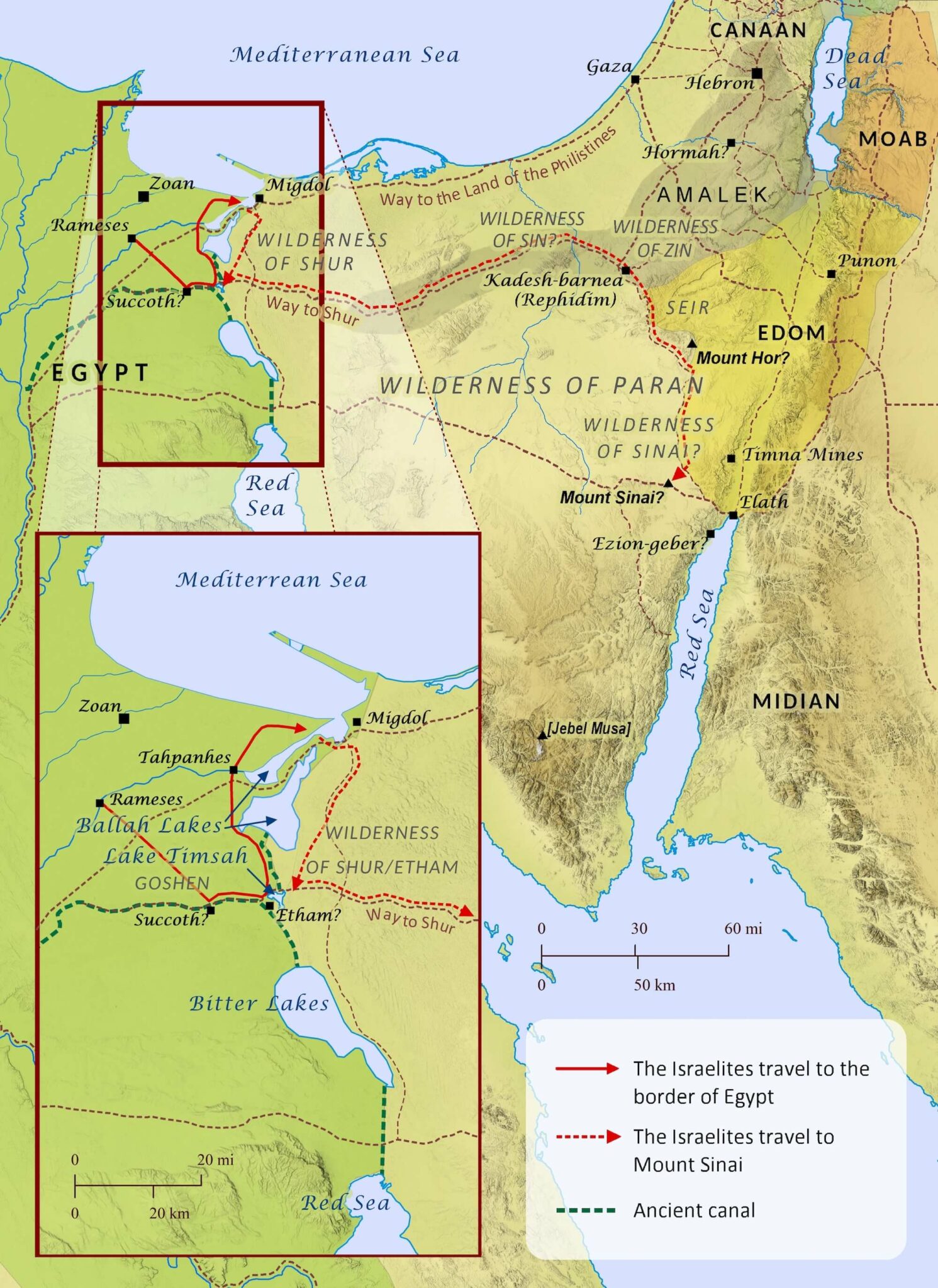The song that was sung by the men in verses 1 – 18 is followed by a reminder of the reason for the song (v. 19) and the celebration by Miriam and the women (vv. 20-21).
Verse 19 seems out of place at first glance. It is, however, a fitting interlude between the song sung by Moses and the men of Israel and the song and celebration by Miriam and the women of Israel. The reason they celebrated was that the horses of Pharaoh with his chariots and his horsemen went into the sea in pursuit of the Israelites to punish them and bring them back into slavery. But the Lord brought back the waters of the sea on them, resulting in their deaths by drowning.
In stark contrast to what the Egyptian army had just experienced, the sons of Israel walked on dry land through the midst of the sea. The fact that they “walked on dry land” was important because it meant that they crossed the Red Sea as fast as possible, not hindered by muddy ground. It also showed that the LORD’s deliverance was a sovereign act of manipulating nature and was truly miraculous.
Like the men of Israel, the women joined in the celebration of the LORD’s victory. The women were led by Miriam the prophetess. Miriam is the first woman in Scripture to be called a “prophetess.” This suggests that she had a significant role both in the leadership and the worship of Israel. There were other women called “prophetess” in the Bible. Deborah (Judges 4:4), Huldah (2 Kings 22:14, 2 Chronicles 34:22), Noahdiah (Nehemiah 6:14), Isaiah’s wife (Isaiah 8:3), Anna (Luke 2:36) were called “prophetess.”
Miriam is also identified as Aaron’s sister, which would also make her Moses’ older sister. Since Moses was around 80 years old at this time, Miriam his older sister (Exodus 2:4) could have been close to 90 years old. To participate in the song, she took the timbrel in her hand. A “timbrel” was a musical instrument similar to a tambourine. Miriam apparently led the procession of women because all the women went out after her with timbrels and with dancing.
She also led them in the singing which accompanied the playing of the timbrel and the dancing Along with the singing and the dancing, Miriam answered them. The word “answered” implies that the women sang to “them,” i.e. the men and what they were singing.
The lyrics contain both descriptive and declarative praise. The first line is the descriptive praise. After the resolve to sing to the Lord, the song declared that He is highly exalted. The phrase is exactly the same intensive expression seen in verse 2 and means that the LORD is “gloriously glorious.” The declarative praise described what the LORD has done – the horse and his rider He has hurled into the sea. This is almost identical to what is in verse 1 and has identical meaning.
Biblical Text:
19 For the horses of Pharaoh with his chariots and his horsemen went into the sea, and the Lord brought back the waters of the sea on them, but the sons of Israel walked on dry land through the midst of the sea.
20 Miriam the prophetess, Aaron’s sister, took the timbrel in her hand, and all the women went out after her with timbrels and with dancing.21 Miriam answered them,
“Sing to the Lord, for He is highly exalted;
The horse and his rider He has hurled into the sea.”
Check out our other commentaries:
-
Colossians 3:23-25 meaning
Paul summarizes his plea to the Colossian believers and offers the incredible incentive therein....... -
Acts 6:1-6 meaning
To make sure all believers receive fair treatment and charity, the apostles arrange for the church to choose seven men of godly character to manage...... -
2 Timothy 4:6-8 meaning
Paul knows he is going to die soon. Unlike other letters, where he writes of running the race to win, now Paul concludes that he...... -
Matthew 1:22-25 meaning
Matthew connects the miraculous birth of Jesus with the prophecy from Isaiah and the theological wonder that Jesus is God. After his genealogy and the...... -
Ecclesiastes 2:1-2 meaning
Solomon evaluates pleasure as a means to satisfy man’s compulsion for understanding, and finds that it is a dead end.......




